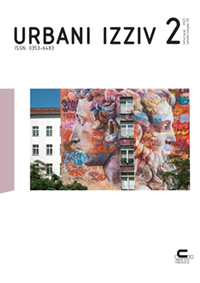Rebuilding post-communist city identity: The case of Novi Pazar, Serbia
Rebuilding post-communist city identity: The case of Novi Pazar, Serbia
Author(s): Mina Petrović, Vera Backović, Milena TokovićSubject(s): Rural and urban sociology, Transformation Period (1990 - 2010), Post-Communist Transformation, Identity of Collectives
Published by: Urbanistični inštitut Republike Slovenije
Keywords: identity; post-communist city; habitus; Novi Pazar; Serbia;
Summary/Abstract: In line with contemporary urban policy to build a competitive city identity, this article deals with the post-communist identity of Novi Pazar, a medium-sized city in southwestern Serbia. Research attention is centred on building urban identity through the dynamic interaction between actors and socio-spatial structures. Following Bourdieu’s notion of habitus, the concept of a city’s habitus is employed as well as Lefebvre’s concept of the social production of space. Special focus is placed on the challenges that post-communist cities face in re-establishing their identity following the former promotion of the “communist (industrial) city” and its subsequent decline. The analysis is based on a survey of residents of Novi Pazar (n = 299) and interviews with experts employed in local government and other local institutions/organizations (n = 14), as well as content analysis of the city’s official website. Novi Pazar is a city with a potentially strong identity but also with considerable structural constraints that block the local agency needed to activate the city’s identity potential.
Journal: Urbani izziv
- Issue Year: 33/2022
- Issue No: 2
- Page Range: 91-102
- Page Count: 12
- Language: English

